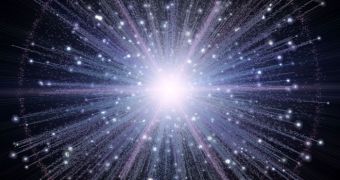A Belgian scientist has demonstrated in a recent paper that the decade-long dream of physicists all over the world might prove to be unprovable. This refers to the grand unification (or unified) theory, also known as GUT, devised in the late '70s. It implies that the electromagnetic, weak nuclear, and strong nuclear fundamental forces merge into a single unified field at extremely high energies (of more than 1014 gigaelectron volts or GeV).
This derives from the general concept according to which all of nature's primordial forces have their origins in a single force, which emerged right after the Big Bang occurred. CERN's Large Electron Positron Collider (the predecessor of the LHC) indicated that during the collisions, the high energies generated caused the three forces to converge. By highly extrapolating, scientists hinted that at higher energies, of about 1016 GeV, they would become almost indistinguishable.
But Xavier Calmet and his team from the Catholic University of Louvain in Belgium state that no particle accelerator, even the ones capable of reproducing the required energy amount, will ever provide accurate results in order to draw a conclusion beyond all doubts. This is mainly because, the expert says, that amount of energy is too close to the Planck scale (1.22 × 1028 eV), where quantum fluctuations in space-time and the quantum effects of gravity become strong.
These fluctuations lead to a huge uncertainty factor in the strength of the fundamental forces at such a grand scale. In other words, there is no way to predict how the forces will actually behave in high-energy conditions, namely that they will continue to maintain their converging habit. New Scientist quoted Calmet as admitting that his conclusion is "a bit depressing," since it rules out the possibility of the LHC ever providing clues to the validity of the GUT.
"We have shown that this is virtually impossible," he shares. "We'll never find out whether unification happens by doing low-energy measurements." Although he acknowledges the paper as a "salutary warning," Frank Wilczek from the Massachusetts Institute of Technology (MIT) believes it is still a theory and that we should just wait and see what results the LHC experiment will actually provide.

 14 DAY TRIAL //
14 DAY TRIAL //